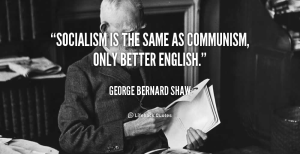Faizur Rasul (b. 1910): Politics, Protest & Class
The national movement had rushed at us, engulfing the whole country (7).
Faizur Rasul uses the first movement for independence lead by Gandhi as a starting point for his autobiography, From Bengal to Birmingham. That appears to be his first brush with politics, which is to become an important part of Rasul’s life. The fact he chose to start with it is significant, he is in his
mid-fifties at the time of writing, and starting the extensive recount of his life with a political movement reveals how he himself views politics as part of him. In the first page of the book, the word “we” (7) appears eight times, two of those at the start of a sentence. Rasul obviously felt part of something, a sense of unity in belief, creating the impression that they could achieve something great through togetherness.
The first move for independence petered out, as did Rasul’s interest in politics as a whole up until it was revitalised by the ever-present Bernard Shaw, who seems to have had an influence over many areas of Rasul’s life. Socialism rears its head through Shaw, and Rasul joins regular political meetings at his local Co-op, where one member proposes: “Genumen, Oi sai [sic] our Indian friend be chairman” (94), a notion that gets passed. Rasul exercises his political beliefs with more conviction than ever before. Where his involvement in India was hectic, passionate, and fleeting, here he has found an organised, bureaucratic, and stable outlet.
Rasul worked as a domestic at the time, which one would assume would be the worst possible job for a socialist. As Shaw puts it, “in Socialism, private property is anathema” (page number unavailable), and to work as a domestic is to take care of exactly that, private property, and not even property that Rasul owns. This does not translate in to Rasul taking his work lightly however, he does not even seem to comment on the ironic nature and possible conflict of his political standpoint and employment. Perhaps his bark is worse than his bite. Later in life Rasul declines to seek any more work as a domestic, although once more he does not mention political reasons, just that “a domestic job, if you got one, tied you too much” (174). Subconsciously there could be shame influencing his decisions, either does not know about it or struggles to admit it.
In terms of larger political movements in Britain on a similar scale to Gandhi’s, Rasul steers clear. He

reflects on a global scale in his final chapter, questioning “how do you create world government when you have not got a standardized political man?” (196). It feels as if he is lamenting for a world that he is no longer part of and cannot connect with; “it is now technically possible to hit and gouge out a sitting sparrow’s left eye from ten thousand miles distance, leaving the right one intact and still blinking” (194). This violent image shows a distaste for the technologically advancing world, a world that presents dangers that were not there before. Overall he communicates a sense of despair, shunning politics in place for religion, as every few paragraphs is interspersed with italicised sentences depicting “God – there is no god but He, …” (200-208), each time ending with a different sentiment. Rasul appears to have fallen out of love with politics in his old age, still holding his beliefs but lacking action. A shame for such a passionate man.
Bibliography
Rasul, Faizur. From Bengal to Birmingham. (London: Andre Deutsch, 1967)


Leave a Reply